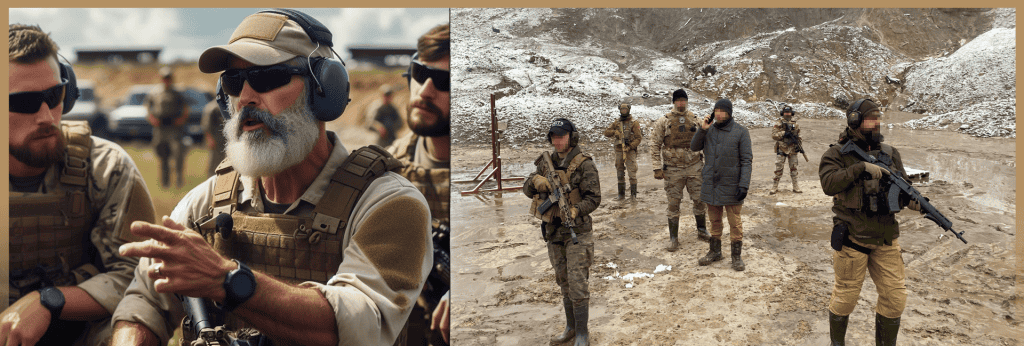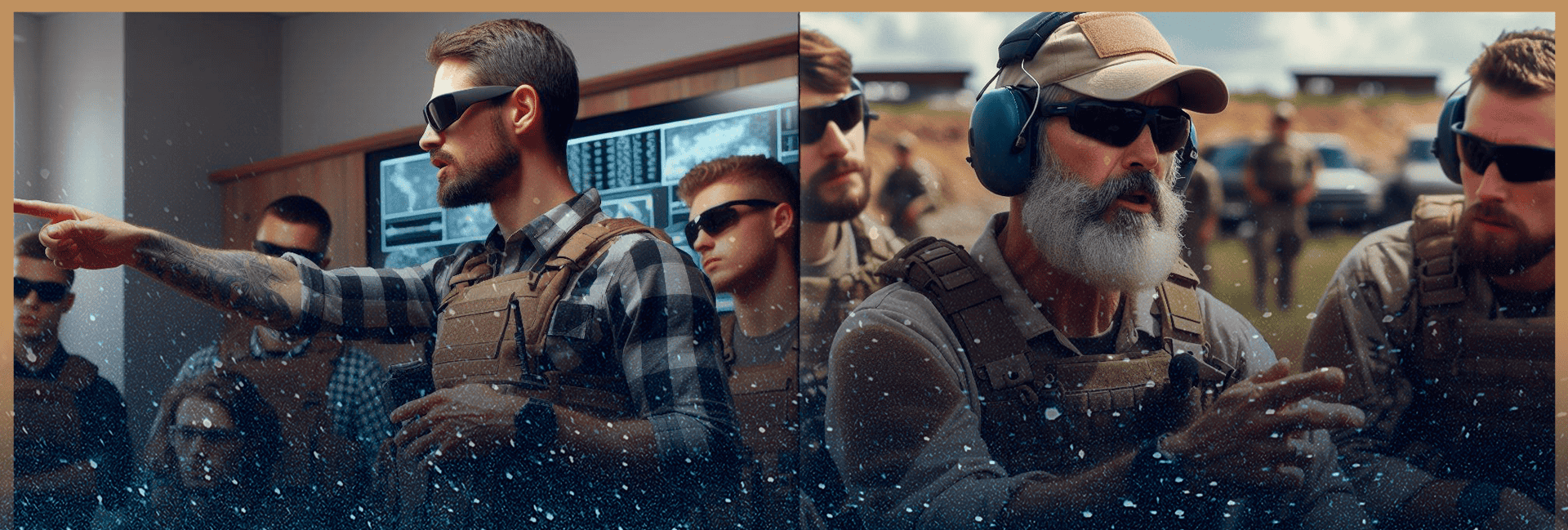TRAINING
In today’s rapidly evolving security landscape, the importance of having qualified and well-trained security personnel cannot be overstated. Whether it is for corporate environments, high-profile individuals, or sensitive facilities, the presence of skilled security professionals is crucial for ensuring safety and mitigating risks. This article will delve into the significance of both theoretical and practical training in the areas of security and bodyguard services.
Theoretical Training: Building a Strong Foundation
Theoretical training forms the backbone of a security professional’s education. It provides the foundational knowledge necessary to understand the complexities of security operations. Key areas of theoretical training include:
– Legal and Ethical Standards: Understanding the legal framework and ethical considerations is essential for security personnel to operate within the boundaries of the law and maintain professional integrity.
– Risk Assessment and Management: The ability to identify, assess, and manage potential risks is critical. Theoretical training equips security personnel with the skills to analyze threats and develop effective mitigation strategies.
– Communication Skills: Effective communication is vital in security operations. Training in this area ensures that security personnel can convey information clearly and respond appropriately in various situations.
– Emergency Response Protocols: Knowledge of emergency procedures and protocols is crucial for handling crises efficiently. Theoretical training covers the steps to take in different emergency scenarios, ensuring preparedness.
Practical Training: Applying Knowledge in Real-World Scenarios
While theoretical knowledge is essential, practical training is equally important. It allows security personnel to apply what they have learned in real-world scenarios, honing their skills and building confidence. Key aspects of practical training include:
– Physical Fitness and Self-Defense: Security personnel must be physically fit and capable of defending themselves and others. Practical training in self-defense techniques and physical conditioning is vital for their effectiveness.
– Scenario-Based Drills: Simulated scenarios provide hands-on experience in dealing with various security challenges. These drills help security personnel develop quick decision-making skills and adapt to dynamic situations.
– Use of Technology: Modern security operations often involve advanced technology, such as surveillance systems and access control devices. Practical training ensures that security personnel are proficient in using these tools effectively.
– Close Protection Techniques: For bodyguards, specialized training in close protection techniques is essential. This includes escorting high-profile individuals, conducting threat assessments, and implementing protective measures.
Conclusion
The importance of having qualified and well-trained security personnel cannot be emphasized enough. The combination of comprehensive theoretical training and rigorous practical exercises ensures that security professionals are well-prepared to handle a wide range of challenges. By investing in the continuous education and training of security personnel, organizations can enhance their security posture, protect valuable assets, and ensure the safety of individuals under their care. In an ever-changing security landscape, the value of skilled and knowledgeable security professionals is indispensable.

In the security field, there are distinct roles that are pivotal for the protection of individuals and assets. Key among these roles are Close Protection Officers (CPOs), Maritime Security Operatives (MSOs), and Personal Security Details (PSDs), each demanding specialized skills and training to handle the complexities of their duties.
Close Protection Officers (CPOs) are responsible for the safety of VIPs, requiring skills in risk assessment, defensive driving, and crisis management. They must be alert, discreet, and ready to act at a moment’s notice.
Maritime Security Operatives (MSOs) focus on the defense of ships and maritime infrastructure, combating threats like piracy and terrorism. Their training encompasses maritime law, security protocols, and emergency maritime procedures.
Personal Security Details (PSDs) protect individuals, often in dangerous territories. They are skilled in protective escort, emergency evacuations, and combat readiness, preparing them for high-risk situations.
For entities aiming to cultivate a cadre of proficient security professionals, it’s vital to invest in extensive training programs that encompass these specializations. In-house training can be customized to meet specific needs, while partnerships with globally recognized academies offer access to esteemed certification programs. These academies provide a thorough education, practical experience, and the acumen required to equip security professionals for their demanding roles.
Ultimately, investing in the training and development of security personnel in these critical areas is fundamental. It ensures that they possess the necessary expertise, skills, and certifications to execute their responsibilities with efficacy and uphold the highest standards of security.



